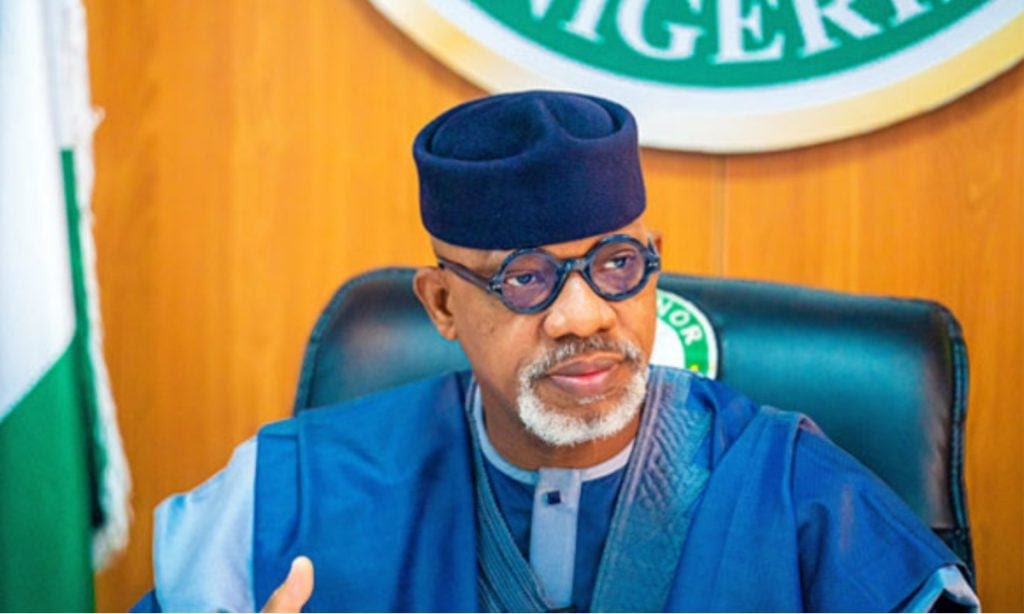- Ogun State Governor Dapo Abiodun dismissed attacks from “faceless people on social media” over poor road conditions in the state
- He highlighted his long political journey and the economic progress made under his administration, appealing for constructive engagement instead of protests
Ogun State Governor Dapo Abiodun has responded to recent criticism and attacks on him and his administration over the poor condition of roads across the state. Earlier this month, social media platforms, especially X (formerly Twitter), were flooded with pictures and videos highlighting the bad roads, causing Abiodun to trend for several days.
Critics targeted Abiodun for failing to provide motorable roads, particularly in communities bordering Lagos State. Commuters from Yakoyo to Alagbole, Akute, Ajuwon, Lambe, and Oke Aro have frequently lamented the poor road conditions.
In response, the government listed numerous road projects completed under Abiodun’s administration, totalling approximately 600 kilometres in the past five years. Following the social media backlash, Abiodun visited some affected areas and directed contractors to expedite ongoing projects.
On Tuesday, during a meeting with a coalition of youth organizations at the Governor’s Office in Oke-Mosan, Abeokuta, Abiodun addressed the attacks. The meeting focused on the growing mobilization for the #EndBadGovernance protest planned for August 1.
According to a statement by his Chief Press Secretary, Lekan Adeniran, Abiodun stated he was not disturbed by attacks from “faceless people on social media.” He highlighted his long and challenging journey to the governorship and emphasized his commitment to his role.
“I normally don’t get disturbed by such things because one of my mentors in politics told me that in politics, you must make sure that you are mentioned either for the right or wrong reasons, but be continuously mentioned because if you are not mentioned, you are just part of the crowd,” Abiodun said.
He continued, “I am not bothered that I have been under attacks by faceless people on social media because I know what I am. I know who I am. I know what I did before I became governor. I know how long I have been on this journey. I became a senator before I was 35, the youngest at the time and I have been in this space in the state contesting on different platforms from that time until God decided that He was going to make me a governor. Someone would imagine that after all that I had gone through to get to this position, all I will do is to be biting my fingernails. That person must be a joke.”
Abiodun emphasized the economic progress made under his administration, noting the significant increase in the state’s Internally Generated Revenue from around N50 billion a year to almost N200 billion in four years.
He also appealed to Nigerian youths to engage constructively with the government to find lasting solutions to the country’s problems rather than resorting to protests. Citing the destruction caused by the EndSARS protests in 2020, Abiodun argued that protests could exacerbate issues rather than solve them.
“There are calls for mass protests across the country, and the first thing that agitates one’s mind is, is that the way to present our case to government? Is that the way to constructively and objectively engage with government by advertising and planning mass protests? Is there something behind those who are calling for these protests? Is this another plan by those who have tried their luck and have lost? Is this their own way and shortcut to see how to frustrate the government?” Abiodun questioned.
He urged the youths to consider the broader implications of protests and to work towards dialogue and collaboration. “You have no other country than this country. Let me assure you that I have traveled far and wide. There is no country in the world where you can walk like your own, that country is Nigeria. There is no other place where nobody will accost you, and you would not challenge that person.”
Abiodun concluded with a Yoruba proverb: “Beheading is not the solution for a headache.” He urged dialogue and constructive engagement to address issues rather than extreme measures.
